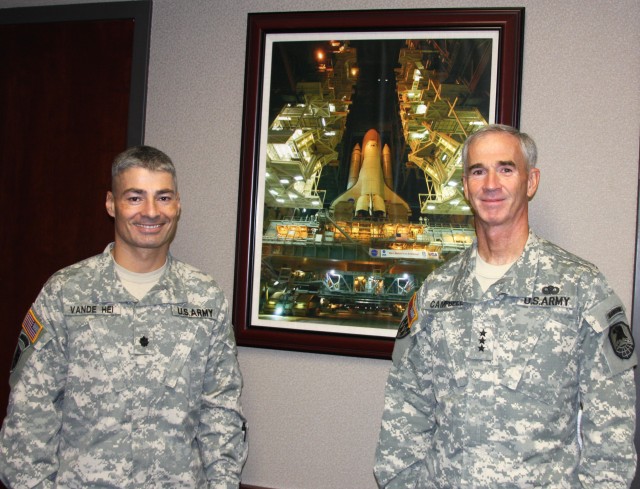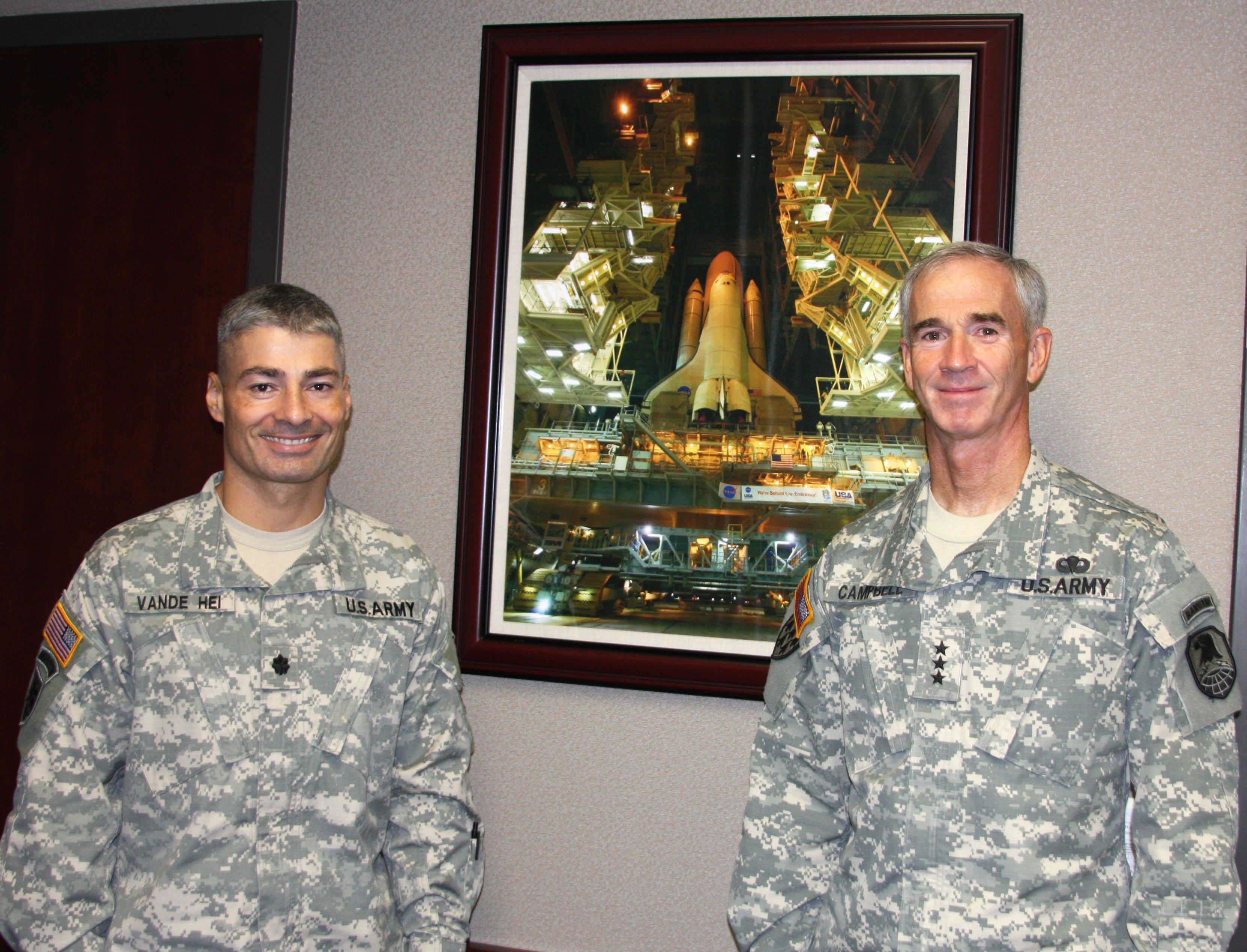
REDSTONE ARSENAL, Ala. - A deluxe session of five grueling days of interviews, extensive physical and medical testing and psychological screens were just a few of the hurdles passed when Lt. Col. Mark Vande Hei got word that he would become NASA's 15th Army astronaut in space. Vande Hei visited the U.S. Army Space and Missile Defense Command/Army Forces Strategic Command here on July 30 and met with LTG Kevin T. Campbell, SMDC/ARSTRAT commanding general, to discuss his selection. Due to what he called a combination of both luck and skill, Vande Hei was selected as an astronaut candidate after only one application attempt to the program.
"When I found out I was selected, I was working as a spacecraft communicator at Mission Control Center at Johnson Space Center in Houston, Texas. I was in an environment where if the astronauts on the International Space Station were talking, I needed to be answering, so I had to put the excitement aside," said Vande Hei.
"I sent my wife a quick text message and went back to work," he said. "She got the message and she and my 11-year-old twins were able to celebrate for me."
When asked what his children thought about him becoming an astronaut, Vande Hei said, "Well, your kids know you really well, so they can't get too impressed. But, my son did write me a note telling me, 'Wow! What a cool dad.'"
Vande Hei said he didn't think much about being an astronaut as a child and credits his company commander when he was a 2nd Lt. with getting him started on the path to space.
"My company commander knew I had the educational background to meet the initial requirements for the astronaut program and asked me to check it out. That was 20 years ago. I looked into the program a little more and saw that all the astronauts who were selected had master's degrees and I was right out of college at that time," Vande Hei stated.
"So, I set a goal to get more education beyond my degree in physics. Frankly, by the time that was over, the thought of being an astronaut was like, 'Come on, who really gets to do that'' "
Vande Hei went on to become an Army space operations officer and spent 12 months as a space support team leader in Iraq supporting Operation Iraqi Freedom. His hopes were set on landing a job at NASA at some point in his career.
"When I returned from my deployment, I was blessed with an opportunity to join the U.S. Army Space and Missile Defense Command/Army Forces Strategic Command Army detachment at NASA and that's where I've been working for the last three years," Vande Hei remarked.
After an initial two-year training period, Vande Hei said he hopes to be selected for a long duration mission aboard the International Space Station (ISS) which would require an additional two to three years of training. Right now, all travel to and from the ISS is done by the Space Shuttle until its retirement in 2010.
"Long duration astronauts will be trained on the Russian Soyuz vehicle for our flights," Vande Hei stated. "My hope is that NASA's Constellation program will be mature enough to provide a U.S. spacecraft as well to get astronauts to and from the space station and beyond."
Vande Hei said that the Army was a perfect fit for preparing him for the astronaut corps.
"When I thought about the ideal job for me, I knew it needed some physical component, something that is a little bit adventurous, constantly changing, and where you are engaged with people. It needed to be a job that involved problem solving skills and technical challenges. Those are the things I looked for in my ideal job, and all those things were what I found in the Army," Vande Hei said.
"More importantly, I had a lot of opportunities to challenge myself in austere environments like Ranger school and training in teams where the teamwork is highly stressed," he said. "The space program requires those same set of skills."
Vande Hei said that managing risk, problem-solving and being faced with unexpected situations were all things that prepared him for selection into the astronaut corps.
"Having the drive to accomplish the mission and count on the others in your team to be well trained to do their part as well are some of the things that will carry over from my Army career to my astronaut career," he further stated.
deborah.erhart@smdc.army.mil

Social Sharing